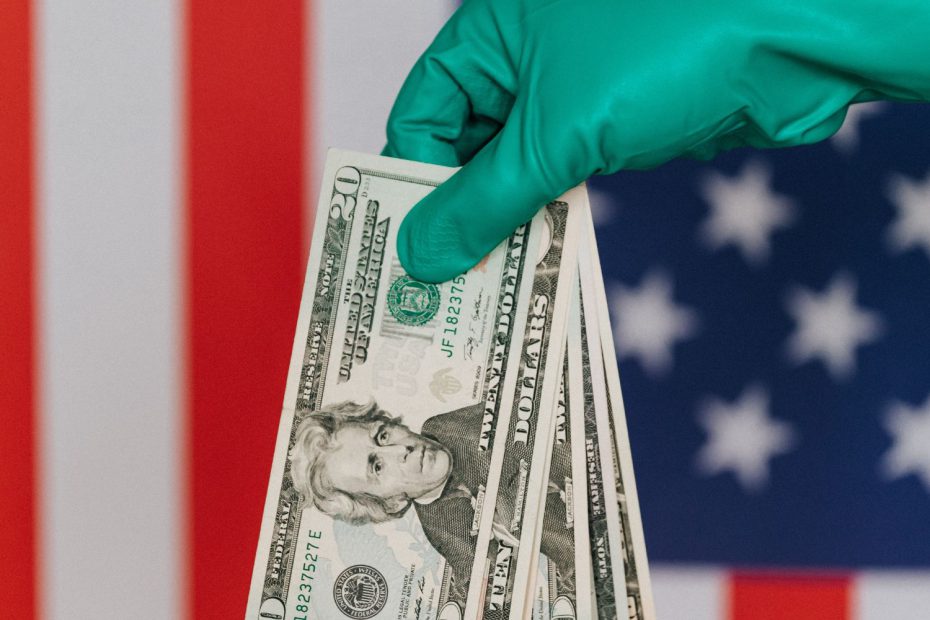The coronavirus has become the most important and widely talked about a global news topic. The virus has already had a major impact on markets and the economy, with fears continuing to rise. But what really is the impact of the coronavirus, is the fear surrounding the outbreak as bad as we’re hearing, and what should investors do?
Human impact
The coronavirus —otherwise known as COVID-19 — is a virus that was first contracted in the Wuhan province of China. It is believed the virus originally came from some sort of animal which transmitted it to a human. The virus has now been transmitted via human-to-human contact, causing a spread of the epidemic throughout the world.
Symptoms of the virus include high fever, coughing, and even organ failure. While there have been close to 3,000 reported deaths from the outbreak, this is only a small percentage of the almost 85,000 reported cases in 56 countries around the world. In fact, most cases of coronavirus are relatively mild, with patients reporting flu-like symptoms that will see them eventually recovering with time.
The virus has spread outside of Asia and is now impacting many countries across the globe. Italy saw the first major outbreak in Europe, and a significant part of northern Italy had to be quarantined. Now, the United States has begun to see its first cases of coronavirus being spread within its borders. It’s true that the current virus has spread much more quickly than previous outbreaks such as SARS or MERS. Yet, according to the most up-to-date statistics, coronavirus is less deadly than other outbreaks, causing fewer deaths per confirmed case.
As expected, scientists and medical teams are working around the clock to unlock a vaccine for the virus. In fact, Israeli scientists recently announced they are only weeks away from one such vaccine that could be widely distributed to patients around the world.
Macroeconomic effects
Anytime the impact of disease spreads so rapidly, there are immediate concerns about how the epidemic may affect the global economy. A lockdown on 46 million Chinese residents has taken a bite out of Chinese consumer spending. This has led to a decrease in demand out of
the country, with the world’s largest companies expressing their concern about such a decrease in demand.
A direct pointer of this issue is in the Baltic Dry Index — an indicator of global shipping — which has quickly fallen to a four-year low. A big reason for the decline is slowing demand in China, which accounts for 40% of global dry imports.
Source: https://tradingeconomics.com/commodity/baltic
To make matters worse, the virus has made it difficult for Chinese factories to operate at full capacity. Factories around the country have shut down, and are now just re-opening for work. Other factories in South Korea, Japan, and elsewhere in Asia, have also been shut down or slowed to a grinding halt after confirmed cases of the virus have been detected among workers.
Effect on the markets
It is widely agreed upon that American companies will find little to no earnings growth for 2020 as a direct result of the coronavirus. David Kostin, the chief US equity strategist at Goldman Sachs, noted to clients, “Our reduced profit forecasts reflect the severe decline in Chinese economic activity in 1Q, lower end-demand for U.S. exporters, disruption to the supply chain for many U.S. firms, a slowdown in US economic activity, and elevated business uncertainty.”
The stock market has been reacting to negative news stemming from the virus, with dramatic daily drops not seen since the 2008 financial crisis. The Dow Jones lost close to 1,200 points on Thursday, dropping 4.4% in a single day. As a whole, major indices in the U.S., Germany, Britain, and Japan are down more than 10% from their recent highs as coronavirus fears continue to stay in the headlines. As expected, markets in China also came crashing down, and South Korean markets have also suffered a big hit.
The bond market is also being impacted by the outbreak. Bond yields hit record lows on Friday as more investors head toward the safer waters of fixed income. The 30-year US Treasury bond fell below 2% and continues to head lower, the 10-year US Treasury Note hit a record low close of 1.14%, and Jerome Powell, The Chairman of the Federal Reserve, signaled that the Fed could take rates down even lower if need be.
But will treasuries continue to move lower?
Some experts are using previous global catastrophes to predict how the coronavirus will impact bond markets. Immediately following the September 11th terrorist attacks and the 2012 tsunami in Japan, treasury yields dropped for two straight months before recovering.
Source: https://www.marketwatch.com/story/the-bond-market-will-be-reacting-to-coronavirus-for-months-this-analysis-finds-2020-02-26
Our projection
While we don’t discount the severity of the coronavirus, we do believe that widespread panic and concern have made the coronavirus appear to be a much more long-term threat than it really is. Apple CEO Tim Cook agrees. “It feels to me that China is getting the coronavirus under control. I mean you look at the numbers, they’re coming down day by day by day. And so I’m very optimistic there,” Cook said.
As companies exposed to China rush to reduce their earnings estimates for the quarter, we currently see no evidence that the virus fears have made a significant or sustained dent on consumer spending which accounts for two-thirds of the U.S. economy. While companies that sell consumer products, like Wayfair, have seen their shares plunge, this is primarily due to the potential disruption in their supply chain since many of the products they offer are sourced in China.
Vaccines for the virus are already being developed, and it’s only a matter of time before the coronavirus is no longer of major concern. China today reported that 39,002 people have been cured and discharged, a number that exceeds the 37,000 people still infected in the country. We expect full containment of the virus within several months and expect global markets and economies to return to their normal levels.
Action plan
When it comes to investing there is an old saying, “Be greedy when others are fearful.” For this exact reason, we believe the fear of coronavirus will actually create more investment opportunities for those willing to hold strong when others are feeling weak. Currently, companies with exposure to China are seeing their stocks hit the hardest, including airlines, travel and leisure, energy, and financials. Yet, this should be viewed as only a short-term blip on the radar, as the long-term prospects and intrinsic values of these companies have not changed. “Panic-selling” often does more harm than good because investors are simply exchanging the short-term pain of patiently riding out a pull-back with the more challenging undertaking of timing the market to get back in.
Warren Buffet described this sentiment perfectly. “We’re buying businesses to own for 20 or 30 years. We buy them in whole, we buy them in parts … and we think the 20- and the 30-year outlook is not changed by the coronavirus.”
Since we view stocks as long-term buying opportunities, investors can find great value in companies with exposure to China, as their stock prices have been hit hardest by coronavirus fears. The prices of these stocks continue to fall in the short-term, largely caused by algorithmic trading on headlines in contrast to business fundamentals.
Patience is key when it comes to waiting out a global health scare. As seen with SARS and other past epidemics, markets will eventually normalize, and those who don’t give in to fear and panic will ultimately come out on top.
We will keep you abreast.
Sincerely,
David Adefeso
Sources:
https://www.theverge.com/2020/2/27/21156458/apple-ceo-tim-cook-reopening-factories-china-coronaviru s-outbreak
https://www.businessinsider.com/quarantine-history-following-china-wuhan-coronavirus-lockdowns-2020- 1
https://www.cnbc.com/2020/02/27/goldman-sees-zero-earnings-growth-for-us-companies-this-year-becau se-of-coronavirus.html
https://www.cnbc.com/2020/02/28/asia-markets-wall-street-in-correction-coronavirus-in-focus.html https://www.cnbc.com/2020/02/24/warren-buffet-interview-live-updates.html
https://www.marketwatch.com/story/the-bond-market-will-be-reacting-to-coronavirus-for-months-this-analy sis-finds-2020-02-26
https://www.marketwatch.com/story/prepare-now-for-the-post-coronavirus-bond-market-this-investor-says -2020-02-24
https://tradingeconomics.com/commodity/baltic
Legal Information and Disclosures
David Adefeso is the Chief Executive Officer of The Pacific Group. He oversees all aspects of the firm’s operations. Prior to The Pacific Group, David worked as a Wall Street Investment Banker with Wasserstein Perella & Co. and Salomon Smith Barney. There, he executed large and complex merger & acquisitions and corporate finance transactions for some of the world’s largest companies. His client base included Aetna US Healthcare, Magellan Healthcare, Allegiance Corp., HealthSouth, MedPartners, Snapple, Interpool Inc., Indigo Aviation, American TransAir, and BlueCross/BlueShields of California, Kansas City & Missouri. Prior to investment banking, David worked as a Certified Public Accountant. He attended Harvard Business School where he graduated with an MBA. Disclaimer: The views expressed are the views of David Adefeso through the period ending February 28th, 2020, and are subject to change at any time based on market and other conditions. This is not an offer or solicitation for the purchase or sale of any security and should not be construed as such. References to specific securities and issuers are for illustrative purposes only and are not intended to be, and should not be interpreted as recommendations to purchase or sell such securities.


